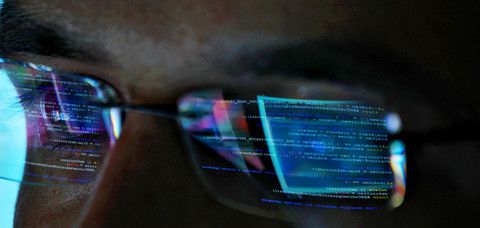Why It Makes Sense to Involve a Forensic Technologist in Electronic Discovery
Over 85 Percent of the World’s Information is Stored Electronically, and Over 50 Percent of that Information is Never Printed Out
With over 85 percent of the world’s information stored electronically, and over 50 percent of that information never printed out, it’s more important than ever to make sure that electronic discovery related to pending litigation is performed thoroughly—and tracks information on multiple mobile devices, as well as desktop computers. Karl Epps explains how a forensic technologist can help.

Why it Makes Sense to Involve a Forensic Technologist in Electronic Discovery
When electronic discovery is involved in your legal action, it pays to get a forensic technologist involved.Â
The term computer forensics really is a much narrower term for a broader discipline, which now involves the cloud, offsite backup services, hosted services like e-mail and CRMs (contact resource management systems),  and other custom applications and more traditional devices like cell phones, tablet devices such as iPads® and DROID hand-held systems, in addition to more standard laptops, desktops, and servers; thus the term forensic technology.
In most cases, the amount of digital material is underestimated. Even though an adverse party may have had a “recent hard drive crash” or just switched cell phones, the likelihood of the data you need being somewhere else is very good.Â
In a recent case, counsel asked that a legal hold be performed for an independent salesperson who was switching companies. The employer had threatened to sue saying that the salesperson had possession of proprietary company data. Counsel and the salesperson said that there was only one desktop and one backup drive.
However, our review at the site revealed that there was far more relevant equipment than was originally described. Under questioning, the salesperson began to understand that any device used for work could cause a problem if the adverse party subpoenaed all of his systems and found additional devices containing the propriety data. Instead of one PC and one backup drive, the scope of the potential evidence included the desktop computer, two backup drives, a laptop and seven thumb drives. Because the goal was full disclosure and removal of any data that was deemed proprietary, it was important to be able to confirm that all available digital devices had been disclosed.Â
E-mail is often an important factor in litigation.  Through the common use of mobile technologies, e-mail is commonly populated on multiple devices. These may include cell phones, tablets, laptops, desktops, servers and even cloud and web-hosted solutions. In a recent case, e-mail was supplied by opposing counsel with only 40 e-mails being produced. After review of all available devices, an additional 760 e-mails were discovered. The additional e-mails were critical to the case.
The vast array of technology devices and constant changes require an expert to assure that discovery is comprehensive. Â Getting a trained specialist involved early may be the deciding factor in the resolution of your case. Â
Karl Epps is certified in Computer Forensics with the EnCe certification. He has over 15 years of experience in computer systems and troubleshooting. He is a principal with Epps Forensic Consulting, PLLC, providing computer-related services through the firm’s Epps Tech division. Visit www.eppsforensics.com.









